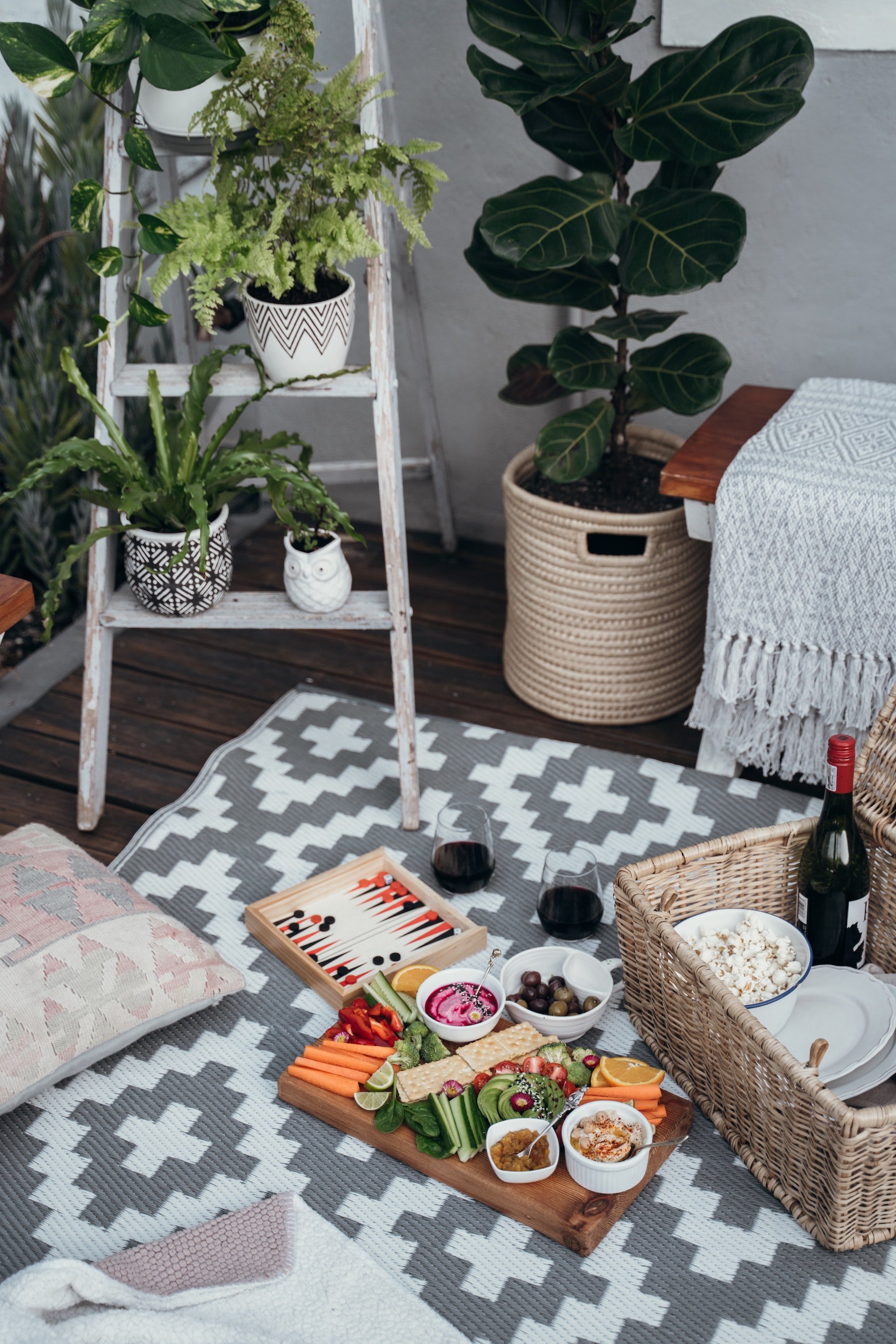What Does Self-Care Really Mean? A Guide to Prioritizing Your Wellbeing
Self-care has become a popular buzzword in wellness, often associated with indulgent activities like bubble baths and facials. While these activities can certainly be a part of self-care, the true meaning of self-care goes much deeper. At its core, self-care is about prioritizing your well-being and taking care of yourself physically, mentally, and emotionally. It's about recognizing your needs and taking steps to meet them, whether setting boundaries, practicing mindfulness, or engaging in activities that bring you joy. In this article, we'll explore what self-care means, why it's important for mental health, and provide top tips for supercharging your mind, body, and emotional well-being. Whether you're new to self-care or are looking to take your self-care routine to the next level, this guide is for you. So, let's dive in and discover the power of self-care for a happier, healthier life.
Hello, World!
What Does Self-Care Really Mean?
Self-care is a term that's often thrown around in the wellness world, but it can be challenging to define what it really means. At its core, self-care is about taking care of yourself in a holistic way. It's about prioritizing your needs and taking steps to meet them, whether that means getting enough sleep, eating a healthy diet, or engaging in activities that bring you joy.
However, self-care is much more than just bubble baths and face masks. While these activities can certainly be a part of self-care, they only scratch the surface of what self-care can look like. True self-care is about listening to your body and mind and taking steps to meet your unique needs.
For some people, self-care might mean going for a run to get their heart rate up and boost their mood. For others, it might mean curling up with a good book and a cup of tea to recharge after a long day. The key is to find what works for you and to make self-care a regular part of your routine.
Ultimately, self-care is about recognizing that you are worth taking care of. It's about recognizing that you deserve to feel good and to make yourself a priority. By taking care of yourself on a regular basis, you'll be better equipped to handle life's challenges and to show up as your best self in all areas of your life.
Why Self-Care is Important for Mental Health
Self-care is essential for maintaining good mental health. When you prioritize your wellbeing and take care of yourself, you're better able to manage stress and cope with life's challenges. This is because self-care helps to reduce the impact of stress on your mind and body, allowing you to feel more resilient and better equipped to handle whatever comes your way.
In addition to reducing stress, self-care can also help to improve mood and reduce symptoms of anxiety and depression. Engaging in activities that bring you joy and help you to relax can boost your mood and increase feelings of happiness and contentment.
Moreover, self-care can also help to improve your physical health, which is closely linked to your mental health. When you take care of your body through exercise, healthy eating, and getting enough sleep, you'll feel better both physically and mentally. This, in turn, can help to boost your confidence, improve your self-esteem, and help you feel more in control of your life.
Overall, self-care is an essential part of maintaining good mental health. By taking care of yourself on a regular basis, you'll be better equipped to handle life's challenges and to show up as your best self in all areas of your life.
Top Self-Care Tips for Supercharging Your Mind, Body, and Emotional Wellbeing
Now that we've discussed what self-care means and why it's important for mental health, let's dive into some practical tips for incorporating self-care into your daily routine. Here are some of our top tips for supercharging your mind, body, and emotional wellbeing:
1. Get Enough Sleep
Getting enough sleep is crucial for maintaining good physical and mental health. When you sleep, your body has an opportunity to repair and restore itself from the wear and tear of daily life. Inadequate sleep can cause a range of health problems, including weakened immune system, diminished cognitive function, and increased risk of chronic diseases such as diabetes and heart disease.
To ensure that you get enough rest, it is recommended that adults aim for 7-9 hours of sleep each night. However, getting the right amount of sleep is not the only factor that affects the quality of your sleep. It is also important to establish a consistent sleep schedule, create a relaxing sleep environment, avoid stimulants such as caffeine and nicotine, and limit exposure to screens before bedtime. By prioritizing sleep and making it a part of your daily routine, you can improve your overall health and well-being.
2. Move Your Body
Exercise has many benefits beyond physical health to encompass mental and emotional well-being. Making exercise a part of your daily routine can be a powerful form of self-care that can reduce stress, enhance mood, and improve the overall quality of life. To reap the rewards, finding a form of exercise that you enjoy and fits your lifestyle is important.
Whether it's running, yoga, or dancing, incorporating a regular exercise routine into your life can have a transformative impact on your overall health and well-being. Additionally, exercise can help you to develop a sense of discipline and resilience, which can translate into other areas of your life, such as work or personal relationships. So why not make exercise a priority today and start reaping the many benefits of this powerful form of self-care?
3. Eat a Healthy Diet
Taking care of oneself is important, and one way to do so is by eating a healthy diet. This involves more than just eating any food; it means eating foods that are good for you and provide your body with the nutrients it needs to function properly. Fruits, vegetables, whole grains, lean proteins, and healthy fats are all examples of nutrient-dense foods that can help you achieve optimal health. Eating a variety of these foods can also help you maintain a healthy weight, reduce your risk of chronic diseases, and improve your overall quality of life.
4. Practice Mindfulness
Mindfulness is a practice that has been used for centuries to help individuals cultivate a deeper understanding of their own minds and body. This technique involves paying attention to the present moment without judgment and accepting things. In today's fast-paced world, where stress and anxiety are all too common, mindfulness can be a powerful tool for improving mental health and well-being.
When practicing mindfulness, you learn to focus on the present moment rather than dwelling on the past or worrying about the future. This can help you reduce stress and anxiety and improve your overall sense of well-being. By paying attention to your thoughts and feelings, you can gain a deeper understanding of yourself and learn to respond to situations in a more effective and healthy way.
In addition to reducing stress and anxiety, mindfulness has been found to have a number of other benefits for mental health. For example, research has shown that mindfulness can help to reduce symptoms of depression and anxiety, as well as improve overall mood and emotional regulation.
Moreover, mindfulness can also have a positive impact on physical health. Studies have shown that mindfulness can help to reduce inflammation, lower blood pressure, and improve immune function. By reducing stress and promoting relaxation, mindfulness can also help improve sleep quality, essential for overall health and well-being.
If you want to incorporate mindfulness into your daily routine, you can try several techniques and practices. For example, you might try practicing mindfulness meditation, which involves focusing your attention on your breath and observing your thoughts and feelings without judgment. Other mindfulness practices include mindful walking, mindful eating, and mindful listening.
Mindfulness is a powerful tool for improving mental and physical health, reducing stress and anxiety, and cultivating a deeper understanding of yourself. By incorporating mindfulness into your daily routine, you can take an active step towards living a more fulfilling and satisfying life.
5. Engage in Activities That Bring You Joy
One of the most important things you can do for yourself is to engage in activities that bring you joy. These activities may differ for everyone, but they all have one thing in common: they make you happy. Whether you enjoy painting, hiking, or playing music doesn't matter. What matters is that you take the time to do these things on a regular basis. By doing so, you are taking care of yourself in a way that can profoundly impact your mental and physical well-being. Not only will you feel happier and more fulfilled, but you will also be better equipped to deal with life's challenges. So make sure to prioritize self-care and find the activities that bring you the most joy!
6. Connect with Others
Connecting with others is an essential part of good mental health. In today's fast-paced world, where social media connections are easily made, it's important not to forget the value of in-person interactions. Consider reaching out to an old friend to schedule a coffee date or invite your family over for a home-cooked meal. Making time for these connections can improve your mood and provide a sense of community and belonging. Remember, human connection is a basic need, so don't be afraid to prioritize it in your busy schedule.
7. Set Boundaries
Setting boundaries is an essential part of self-care. It is important to learn to say no to activities and commitments that do not align with your values or that will leave you feeling drained or overwhelmed. This can be difficult, especially if you are used to saying yes to everything. However, by setting boundaries, you take control of your life and prioritize your needs.
One way to set boundaries is to practice self-awareness. Take the time to reflect on what is important to you and what makes you feel fulfilled. This will help you identify activities and commitments that align with your values and those that do not. Once you have this awareness, you can start saying no to the latter and yes to the former.
Another way to set boundaries is to communicate your needs clearly. This means telling others what you can and cannot do, and being honest about how much time and energy you have to give. It may feel uncomfortable at first, but it is important to be assertive and stand up for yourself. Remember, you are not being selfish by setting boundaries; you are taking care of your well-being.
In addition, it can be helpful to seek support from others. Talk to friends, family, or a therapist about your struggles with setting boundaries. They can offer guidance, encouragement, and accountability as you work to prioritize your needs. With time and practice, setting boundaries will become easier and more natural, and you will feel more empowered and in control of your life.
8. Unplug
In today's digital age, taking breaks from technology to recharge and rejuvenate is essential. Set aside time each day to unplug, whether walking in nature or sitting quietly without your phone or computer.
By incorporating these self-care tips into your daily routine, you'll be well on your way to supercharging your mind, body, and emotional well-being. Remember, self-care is about prioritizing your needs and taking steps to meet them. So make self-care a regular part of your routine and watch as your mental health and well-being flourish.
Self-Care Can Look Like Anything
It's important to note that self-care can look different for everyone. What works for one person may not work for another, and that's okay. Self-care is a deeply personal practice that should be tailored to your individual needs and preferences.
For some, self-care might mean taking a long bubble bath or indulging in a favorite hobby. For others, it might mean seeking therapy or setting aside time for meditation. There is no one-size-fits-all approach to self-care, and that's why it's essential to experiment with different practices and find what works for you.
It's also important to remember that self-care isn't always easy. Sometimes, taking care of ourselves requires us to confront uncomfortable emotions or make difficult decisions. But the rewards of self-care are well worth the effort. By prioritizing our own needs and wellbeing, we are better able to show up for ourselves and others in a more present, compassionate, and engaged way.
What Self-Care Really Means
At its core, self-care is about self-love and self-compassion. It's about recognizing that we are human beings with complex emotions and needs, and that taking care of ourselves is an essential part of living a healthy, fulfilling life.
Self-care isn't selfish, and it's not a luxury. It's a basic human need that we all deserve to prioritize. By taking care of ourselves, we are better able to show up for our loved ones, our work, and our passions.
Make Self-Care a Priority
In conclusion, self-care is an essential part of maintaining good mental health and wellbeing. By taking time to prioritize our needs and engage in practices that promote self-love and self-compassion, we are better able to live happy, healthy, and fulfilling lives.
Remember, self-care doesn't have to be complicated or time-consuming. It can be as simple as taking a few deep breaths, setting aside time for a favorite activity, or saying no to commitments that don't align with our values.
So make self-care a priority in your life. And if you need a little extra support or inspiration, be sure to subscribe to the WellnessBum Slowdown Sunday newsletter, where we share plenty of tips, tools, and resources for living your best life.
Resources that can help you in your self-care journey:
Muse Meditation Headband: The Muse Meditation Headband is a wearable device that helps you meditate by providing real-time feedback on your brain activity. It uses EEG sensors to measure your brainwaves and gives you guidance on how to stay focused and calm during your meditation practice.
BetterHelp: BetterHelp is an online counseling service that connects you with licensed therapists from the comfort of your home. Whether you're struggling with anxiety, or depression, or just need someone to talk to, BetterHelp provides a convenient and affordable way to get the support you need.
Headspace: Headspace is a meditation app that offers a variety of guided meditations for different goals and levels of experience. Whether you're looking to reduce stress, improve focus, or get better sleep, Headspace has a meditation for you.
Othership App: Othership is a community-driven platform that connects you with like-minded people and resources to help you achieve your goals. Whether you're looking to improve your health, build your career, or pursue your passions, Othership provides a supportive and empowering environment to help you succeed.
ALO Moves: Alo Moves is an online platform with yoga and fitness classes, guided meditations, and other wellness resources. Experienced instructors from around the world lead classes in various styles and difficulty levels. Incorporating Alo Moves into your self-care routine can be beneficial for both physical and mental health, as it provides an accessible way to exercise, manage stress, and cultivate inner calm.
Remember, self-care is a deeply personal practice that should be tailored to your individual needs and preferences. These resources are just a few options to explore, but many others may be more suitable for you. Take the time to experiment and find what works best for you.
Self-Care Reading
Here are some sources that I recommend for further reading on the topic of self-care:
"The Self-Care Solution: A Modern Mother's Must-Have Guide to Health and Well-Being" by Julie Burton: This book provides practical advice and insights for busy moms who are struggling to prioritize self-care amidst the demands of daily life.
"The Body Is Not an Apology: The Power of Radical Self-Love" by Sonya Renee Taylor: This empowering book offers a radical perspective on self-care, arguing that it starts with accepting and loving our bodies as they are.
"The Little Book of Self-Care" by Adams Media: This small but mighty book is filled with simple and accessible self-care practices that you can incorporate into your daily routine, from mindfulness exercises to DIY spa treatments.
"The Self-Love Experiment: Fifteen Principles for Becoming More Kind, Compassionate, and Accepting of Yourself" by Shannon Kaiser: This book offers a step-by-step guide to cultivating self-love and self-compassion, with practical exercises and reflections to help you deepen your self-awareness.
"Radical Dharma: Talking Race, Love, and Liberation" by Rev. Angel Kyodo Williams, Lama Rod Owens, and Jasmine Syedullah, PhD: This book explores the intersection of self-care, spirituality, and social justice, with a focus on how self-care can be a powerful tool for resisting systemic oppression and promoting collective liberation.
Remember to always approach self-care with an open mind and a willingness to experiment and explore what works best for you. With the right resources and guidance, you can develop a self-care practice that nourishes and supports you on every level.
Here are the sources that were used to inform this blog post:
American Psychological Association. (n.d.). The Importance of Self-Care for Your Mental Health. Retrieved from https://www.apa.org/gradpsych/2018/11/self-care
Healthline. (2022). Self-Care 101: Definition, Guide, and Tips. Retrieved from https://www.healthline.com/health/self-care
Brodesser-Akner, T. (2019, January 28). Self-Care Is Not an Indulgence. It’s a Discipline. The New York Times. Retrieved from https://www.nytimes.com/2019/01/28/style/self-care-is-not-an-indulgence-its-a-discipline.html
Reading, S. (2017). The Self-Care Revolution: Smart Habits & Simple Practices to Allow You to Flourish. Aster.
Eckstrom, L., & Eliot, T. (2019). The Art of Self-Care: A Simple Guide to Living a Stress-Free and Happier Life. Chronicle Books.
Note that any other sources used in the blog post have been properly cited within the text.












